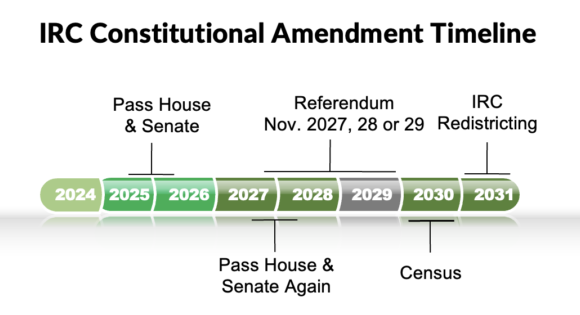Announcing Senate Bill 1076
Senator Tim Kearney invites colleagues to join him in a bill that prioritizes citizens over politicians, and democracy over back-room dealings.
At the May 2 Zoom forum, Mapping Pennsylvania’s Future, Senator Kearney announced Senate Bill 1076, a companion bill to House Bill 1776. The cosponsor memo is now circulating. The bill will be introduced soon.
Senator Kearney said “The legislation represents the best of our democracy, puts our noble ideals over worst instincts and transcends party lines.” That’s been the Fair Districts PA goal from the start: district lines that don’t give preference to either party, but allow all communities and all voters an equal voice.
Representative Samuelson and colleague Mark Gillen introduced House Bill 1776 on April 17. Rep. Samuelson reminded attendees that his redistricting reform bill of 2008 was blocked by Democratic leaders in the House, while a 2018 bill that gained 110 cosponsors was blocked by Republican leaders. According to Samuelson: “The goal is to set the district lines without politicians in the room.”
FDPA speaker Tony Crocamo provided a detailed explanation of the proposed bills and the three different aspects of a stable, balanced approach:
- Commission independence
- Transparent public process
- Prioritized mapping criteria
He compared the two current commissions and processes to the one proposed commission and much more public process.
FDPA Chair Carol Kuniholm joined him to explain the rationale for clearly prioritized mapping criteria, comparing scant existing criteria to the greater detail of the proposed legislation.
Philip Hensley-Robin, Executive Director of Common Cause PA, brought a national perspective. He reminded attendees of the conflict of interest inevitable when legislators draw district lines. He also made clear that proposed legislation would lessen involvement of the PA Supreme Court, also elected in partisan elections. As he noted:
“While litigation is inevitable in the redistricting world, in states where politicians are in charge, 36% of maps are struck down as illegal or drawn by courts, but in states with independent commissions, 89% of maps are upheld or not challenged in the first place.”
There is not much time left in the current session. Advocates can use that time to talk with legislators, invite cosponsorship and ask candidates for legislative office where they stand on this issue.
- Bill summary
- Senate Bill 1076 Legislative Reference Bureau blueback draft
- Common Cause Flyer: Redistricting Commissions
- Watch the press conference
- Contact your legislator
